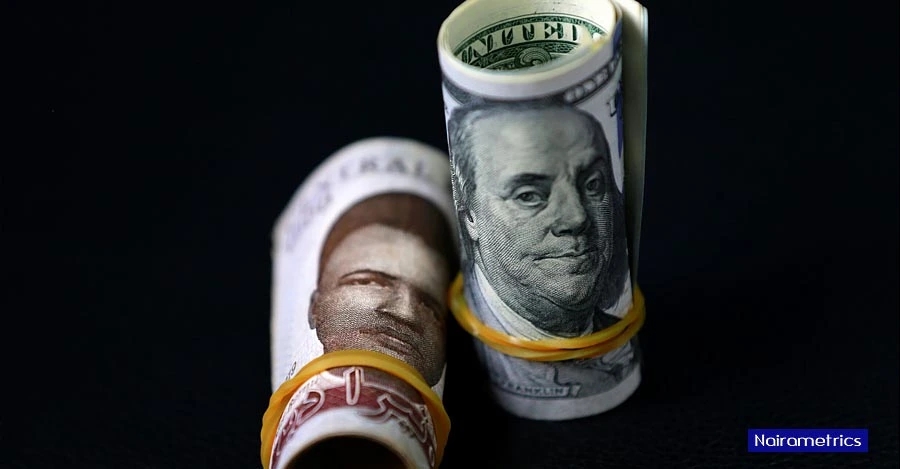The naira suffered a significant depreciation on the Nigerian Autonomous Foreign Exchange Market (NAFEM) window, closing at N1,561.98/$1 on Wednesday, July 10, 2024.
According to data from the FMDQ Securities Exchange, the naira depreciated by 2% from N1,532.58/$1 recorded the previous day.
This is the third consecutive deprecation amid stronger external reserves and rising foreign exchange (FX) turnover.
It is also the lowest level since March 18, 2024, when it was N1,597.25/$1, as the naira nears N1,600 less than three weeks after it crossed the N1,500 ceiling.
Naira traded at N1,585/$ intra-day high
The trading dynamics on Wednesday further show the volatile nature of the FX market.
During intra-day trading, the exchange rate peaked at an intra-day high of N1,585/$1, reflecting periods of heightened buying pressure on the naira.
Conversely, the intra-day low dropped to N1,475/$1. The sharp movements within a single trading day suggest heightened uncertainty and instability in the market.
Consecutive surge in FX turnover
While the naira has been falling against the dollar in the past three days, there has been a consecutive increase in FX turnover within the same period.
FX turnover on the official market surged by 25.78% on Wednesday, hitting $236.7 million, from $188.19 million recorded the previous day.
The surge was more pronounced on Tuesday, when it increased by 41.01% while on Monday, it recorded an increase of 14.19%.
This week, FX turnover has increased by 77.36% between Monday and Friday.
More Insights
Nairametrics earlier reported that Nigeria’s external reserves reached $35.05 billion as of July 8, 2024, which is the highest level since May 30, 2023, when it was $35.09 billion, about 14 days before the introduction of the FX unification policy in June 2023. This is the first time it has crossed the $35 billion ceiling under the administration of Bola Tinubu.
It appears that the recent FX policies of the Central Bank of Nigeria (CBN) alongside a string of financial commitments from the likes of Afrexim Bank and the World Bank through loans have bolstered the growth of the reserves.
However, it appears that the recent steady depreciation of the naira has defied the CBN’s efforts to stabilize the local currency.
Nairametrics earlier projected that currency weakness could be imminent as the summer holidays approach when Nigerians mostly fly out of the country for vacations.
This recent crash occurred amid the claim by the Governor of the Central Bank, Yemi Cardoso, that the country has already experienced the worst of naira volatility regarding foreign exchange.
During an interview in London with Bloomberg TV, Cardoso said he is satisfied with how far they have been able to manage the currency crisis in the past few months.
Regarding whether the naira has reached its peak value or if further appreciation is expected, the CBN chief stated that it depends on “a host of different issues,” implying that the fiscal side plays a significant role in determining the value of the currency.
Cardoso, however, added that it is a work in progress as they will continue to implement certain macroeconomic fundamentals that will positively impact the market.
